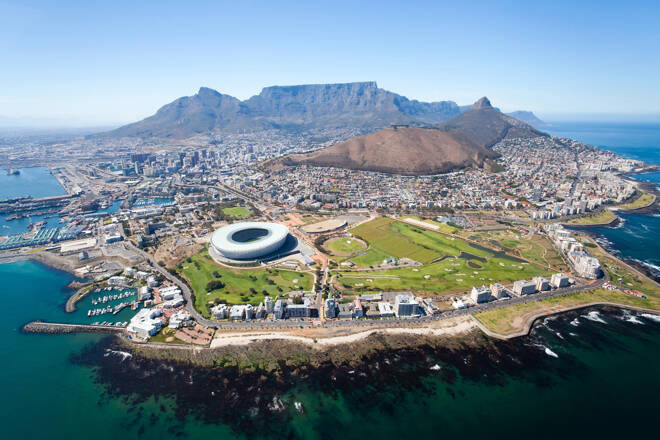Advertisement
Advertisement
African Nations’ Shock Resistance, Debt Sustainability Varies Widely Despite Shared Vulnerabilities
By:
Africa remains home to some of the world’s economies most vulnerable to external shocks, but resilience diverges across the continent, with Algeria, Botswana and South Africa performing best on Scope Ratings’ latest global external-risk study.
Our annual external risk-ranking report reflected this year 12, mostly larger African economies, comprising those with sufficiently transparent data for metrics assessed under the report, although 2021 findings attest to the continent’s mixed economic performance through the Covid-19 crisis.
Algeria, Botswana and South Africa stand out for comparatively stronger resilience in the region
Botswana stands out with respect to external-sector resilience, supported by stronger public finances and a comparatively stable crawling-band exchange-rate policy. Neighbouring South Africa’s recovering economy has shock absorbers during external crises in a long average maturity of government debt of around 12 years of which a lesser proportion (10%) is denominated in foreign currency, plus a flexible exchange rate.
Algeria owes its external-sector resilience to adequate holdings of official reserves and limited outstanding foreign currency debt or debt held by foreign creditors, reflecting longer-standing government reluctance to borrow internationally. These factors partially compensate for persistently wide current-account deficits.
Zambia, Angola and Gabon are Africa’s three riskiest economies under 2021’s ranking
On the other hand, features common to Africa’s more fragile economies include net capital outflows, volatile, less-globally traded domestic currencies, large net international liability positions, inadequate reserves and high foreign ownership and foreign-currency-denomination of their government debt – this being most significantly true as regards Zambia, Angola and Gabon.
Zambia, Angola and Gabon compose the Africa region’s “risky-3” under this year’s Scope ranking, which embeds a special concentration on Africa.
Zambia and Angola are participating in the G20 debt service suspension initiative (DSSI). Zambia has sought more comprehensive debt restructuring under an associated G20 Common Framework for Debt Treatments beyond the DSSI, after defaulting on debt late in 2020.
G20 debt-relief programmes risk not going far enough in addressing Africa’s solvency crisis
The G20 Common Framework’s continued concentration upon extension of debt maturity and, only where applicable, debt reduction on NPV terms, risks achieving overly little in improving debt sustainability as regards many heavily indebted sovereign states. The DSSI and the Common Framework also target low-income countries, leaving many middle-income countries vulnerable to debt crisis.
Many African governments are poorly placed in dealing with their heavier medium-run debt servicing requirements due to DSSI payment postponements. Half of all sub-Saharan African sovereigns were at high risk of or in debt distress already prior to the Covid-19 crisis.
A more comprehensive debt restructuring involving debt forgiveness could enhance credit profiles of many poorer countries of the Africa region significantly after restructuring. We have titled such a framework more comprehensively embedding debt forgiveness: DSSI+.
Instead, by postponing today’s problems to tomorrow under DSSI, interest and principal payments may come due during periods when there is less international support for multilateral debt relief than there is today.
Zambia’s default has elevated concern around African debt owed to China
Zambia’s 2020 default has elevated concern surrounding repayment risk associated with other highly indebted countries with borrowing from China, such as Angola or Uganda, as the latter furthermore seeks amendment of loan clauses.
Among other African markets, Nigeria’s comparatively lesser dependence upon financing in foreign currency plus liquid domestic debt markets support external resilience. However, persistent high inflation has resulted in overvaluation of the naira.
Meanwhile, Kenya’s outstanding external risks are mitigated by IMF extended arrangements as well as relief provided via DSSI, which Kenya made a U-turn concerning and participates under this year.
Our annual external vulnerability and resilience rankings evaluate nations on 1) underlying vulnerabilities to a potential balance of payment crisis; and 2) economies’ degree of underlying resilience when exposed to such external crisis. This year’s ranking expanded the Africa sample to 12 nations of the region, from two in 2020.
For a look at all of today’s economic events, check out our economic calendar.
Dennis Shen is a Director in Sovereign and Public Sector ratings at Scope Ratings GmbH. Levon Kameryan, Senior Analyst at Scope Ratings and co-author of the report, co-wrote this article.
About the Author
Dennis Shencontributor
Dennis Shen is the Chair of the Macroeconomic Council and Lead Global Economist of Scope Ratings based in Berlin, Germany.
Advertisement
